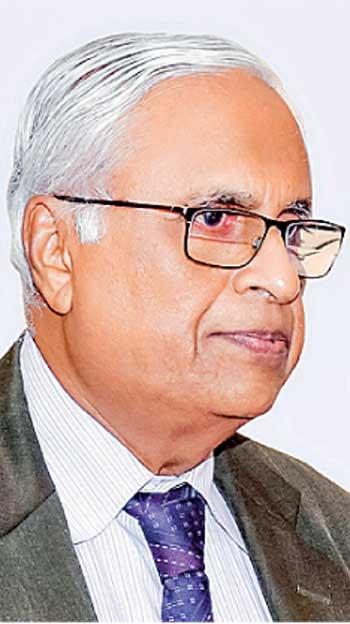25 Sep 2024 - {{hitsCtrl.values.hits}}
 |
| Nissanka N. Wijeratne |
Sri Lanka’s construction industry, still struggling to regain momentum despite modest growth, said the newly elected president faces the challenging task of steering the sector’s recovery and reshaping its development path.
In a congratulatory message to President Anura Kumara Dissanayake, the Chamber of Construction Industry of Sri Lanka (CCI) outlined key areas requiring urgent intervention to make the local construction industry more efficient, sustainable, and globally competitive. The chamber emphasised that addressing these issues is critical for driving economic growth and attracting greater investment into the country.
The first is that projects above Rs. 200 million in value should commence only after a proper feasibility study is undertaken. To ensure this a National Planning Commission (NPC) similar to that in India, should be established and approval of the NPC should be mandatory for all projects exceeding Rs. 200 million.
The second is to enact a Public Procurement Law as recommended by IMF since at present there are widespread violations of the Government Procurement Guidelines.
“Procurement should be only on competitive bids on BOQs based on completed designs & documentation, to ensure timely completion and to minimise cost overruns. There shall be no unsolicited proposals considered,” CCI Secretary General and CEO Eng. Nissanka N. Wijeratne said.
He noted that procurement action should commence only if adequate funds have been allocated in the Budget or secured.
To ensure transparency in the government procurement process, Procurement Committees on works contracts over Rs. 200 million shall have a senior professional nominated by the Chamber of Construction Industry of Sri Lanka, as an industry representative.
While calling to enact a Building & Construction Industry Security of Payment Act, similar to the law in Singapore, Wijeratne stressed it is important to implement the proposal of the Presidential Commission on Simplification of Laws & Existing Regulations to ensure the issue of development permits within three weeks by amending the UDA Act to establish a statutory committee with time limits for granting these permits.
Further, efforts must be taken to establish a development bank to promote innovations and development of projects.
Efforts are also needed to amend the Arbitration Act to ensure that arbitration hearings and awards shall be concluded within 3 months from commencement similar to the practice in Singapore.
The CCI chief also asserted the need to adopt a Code of Ethics applicable to all stakeholders of the infrastructure and buildings development process.
An imperative is also to exempt housing and apartment developments from turnover taxes as such taxes will be an additional cost to the individual buyers of these units.
Wijeratne suggested the introduction of a housing loan scheme at a concessionary interest rate of 5 percent repayable over 40 years to the first-time home builders, similar to the two generations home loan schemes in Europe.
Further, to promote export of construction services by undertaking works contracts abroad, Wijeratne urged the government to select 10 proven major contractors, in consultation with the Chamber of Construction Industry of Sri Lanka, and facilitate necessary bank guarantees in US$ for one contract each to these companies to undertake works contracts abroad. Each of these major companies shall award sub – contracts to 2 local companies, so that through this process 30 local companies will venture on overseas work.
Similarly, to promote export of consultancy services by undertaking consultancy contracts abroad, the government should select 15 proven consultancy firms registered with CIDA in consultation with the relevant professional institute and facilitate necessary bank guarantees and professional indemnity policies in US$ to these firms to undertake consultancy contracts abroad.
The CCI also called on the government to enact the amendments to Construction Industry Development Act, No.33 of 2014 and the Regulations & Rules thereby including the Regulations for Contract Adjudication that were discussed at the National Advisory Council on Construction since 2016, without further delay.
Lastly, he stressed the need to establish a Standing Steering Committee on Construction (SSCC), chaired either by the President or the Secretary to the President, or a Senior Additional Secretary to the President to regularly monitor the development projects with the authority to give directions to solve any issues impeding progress.
24 Dec 2024 46 minute ago
24 Dec 2024 1 hours ago
24 Dec 2024 2 hours ago
24 Dec 2024 3 hours ago
24 Dec 2024 4 hours ago